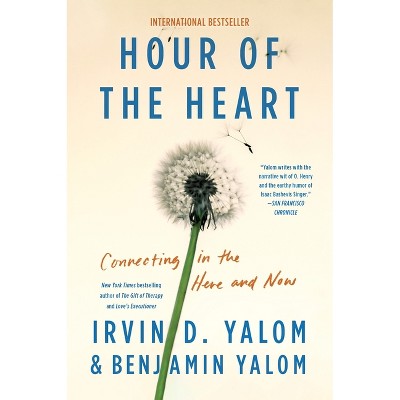Sponsored

Writing to the Rhythm of Labor - by Benjamin Kindler
$145.99
In Stock
Eligible for registries and wish lists
Sponsored
About this item
Highlights
- What does it mean to write in a socialist revolution?
- About the Author: Benjamin Kindler is an assistant professor in the Department of Cultural Studies at Lingnan University, Hong Kong.
- 296 Pages
- Literary Criticism, Asian
Description
About the Book
Benjamin Kindler examines how writing transformed the Chinese Revolution even as the revolution remade what it meant to write.Book Synopsis
What does it mean to write in a socialist revolution? What defines labor in a communist society? In revolutionary China, writers were regularly dispatched to the countryside or factories with the expectation that, through immersion in the life of workers and peasants, they would be remade as "culture workers" whose writing could serve the communist project. Their cultural labor would not merely reflect or represent the process of building socialism--it would actively participate in it by excavating the contradictions and challenges of the ongoing reorganization of social relations.
Benjamin Kindler examines how writing transformed the Chinese Revolution even as the revolution remade what it meant to write. He argues that the revolution sought in unparalleled ways to overcome the basic division between those who write and those who work. This book combines close readings of a wide range of texts--from the works of established figures to the writings of amateur workers drawn from the factory floor--with analysis of Chinese socialist political economy. Far from being drab instances of state propaganda, these texts and cultural experiments were lively and inventive attempts to determine what a different, more equal society might look like. Offering new ways to understand cultural production as a material, embodied process, this book reconsiders the role of art and literature in radical politics.Review Quotes
[An] absorbing and challenging book.-- "MCLC"
Writing to the Rhythm of Labor announces the arrival of a major new voice in the field of modern Chinese literary study. Kindler interrogates the category of the "cultural worker" as integral to the Chinese socialist project's attempts at overcoming the divide between mental and manual labor. Boldly rejecting modernist notions of the aesthetic autonomy of literary writing that has long structured the field of modern Chinese literary studies, Kindler invites us to take seriously the wager that the division between those who wrote and those who worked with hand, plough, or machine could be overcome. What Kindler unearths is nothing less than a collective re-imagining of how literature could be produced, read, and taught in a modern world under radical transformation.--Mark McConaghy, National Sun Yat-Sen University
Rigorously researched and conceptually compelling, this remarkable book reframes the theory and practice of literary writing in socialist China as a response to a central problem of Marxist revolutions: the role of the intellectual and the relationship between mental and manual labor. An important contribution to our understanding of socialist literature and cultural politics in the twentieth century.--Edward Tyerman, University of California, Berkeley
What does the labor of writing mean in the midst of an ongoing social revolution? Through elegant and detailed exposition, Kindler addresses with seriousness and sympathy China's transition to socialism as a culturally creative narrative process that helped shape the social relations and the imagination of a future not yet foretold.--Rebecca E. Karl, New York University
About the Author
Benjamin Kindler is an assistant professor in the Department of Cultural Studies at Lingnan University, Hong Kong.Dimensions (Overall): 9.21 Inches (H) x 6.14 Inches (W) x .81 Inches (D)
Weight: 1.31 Pounds
Suggested Age: 22 Years and Up
Sub-Genre: Asian
Genre: Literary Criticism
Number of Pages: 296
Publisher: Columbia University Press
Theme: Chinese
Format: Hardcover
Author: Benjamin Kindler
Language: English
Street Date: May 20, 2025
TCIN: 94151307
UPC: 9780231219310
Item Number (DPCI): 247-42-7652
Origin: Made in the USA or Imported
If the item details aren’t accurate or complete, we want to know about it.
Shipping details
Estimated ship dimensions: 0.81 inches length x 6.14 inches width x 9.21 inches height
Estimated ship weight: 1.31 pounds
We regret that this item cannot be shipped to PO Boxes.
This item cannot be shipped to the following locations: American Samoa (see also separate entry under AS), Guam (see also separate entry under GU), Northern Mariana Islands, Puerto Rico (see also separate entry under PR), United States Minor Outlying Islands, Virgin Islands, U.S., APO/FPO
Return details
This item can be returned to any Target store or Target.com.
This item must be returned within 90 days of the date it was purchased in store, shipped, delivered by a Shipt shopper, or made ready for pickup.
See the return policy for complete information.
Frequently bought together

$10.38 - $23.82
was $18.00 - $38.00 New lower price
4.6 out of 5 stars with 193 ratings
Trending Books for all Ages



$9.85 - $23.09
MSRP $15.99 - $32.99
4.8 out of 5 stars with 147 ratings
Discover more options

$19.49 - $22.99
MSRP $22.99 - $34.95
5 out of 5 stars with 1 ratings












